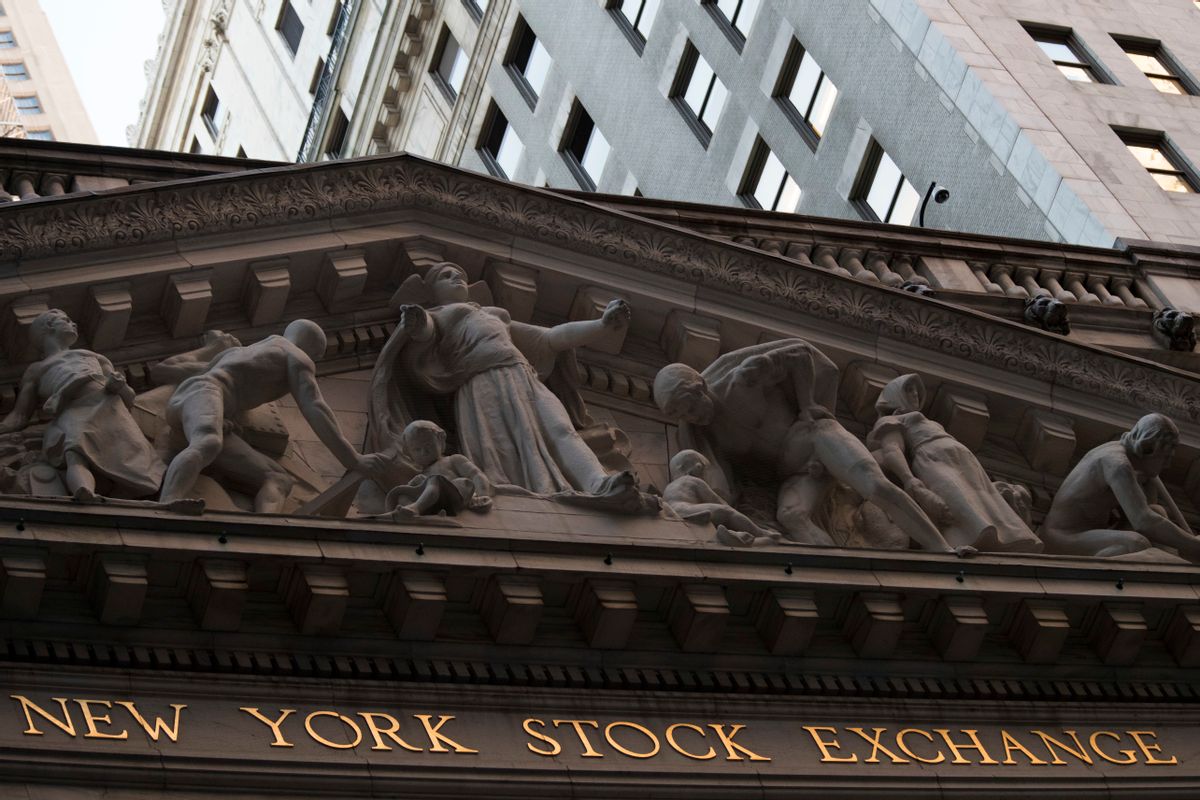Deep within the Dodd-Frank Wall Street Reform and Consumer Protection Act, one of many post-recession reforms designed to prevent future financial crises, you'll find the much-vaunted "Volcker Rule," widely credited as a core reform that helps stop banks from making the kinds of risky investments that put consumers at risk. Named for Chairman of the Federal Reserve Paul Volcker, nonprofit policy think tank Demos describes the rule as a means to stop banks "from taking 'proprietary' bets for their own profit, with taxpayer-backed deposit funds," as well as "ban[ning] firms from packaging risky securities for customers and then betting that they will fail," as Goldman Sachs did in the late-2000s.
Now, Federal bank regulators are trying to sap the Volcker rule of its remaining regulatory power. The move seems suspiciously like an instance of Trump-appointed regulators enacting the will of Wall Street.
On Wednesday, Federal bank regulators released a proposal to soften these measures, which would give Wall Street banks more freedom to make riskier bets. The proposal eases several parts of the the Volcker Rule.
A public comment period on the proposal is expected to ensue for the next 60 days.
“Turning now to concepts and principles, the objective behind this proposal is straightforward: simplifying and tailoring the Volcker rule in light of our experience with the rule in practice,” Vice Chairman for Supervision Randal K. Quarles wrote in the announcement. “This is a goal that is shared among all five agencies and among policymakers at those agencies with many different backgrounds.”
Quarles is an odd choice to be a bank regulator, particularly given that he has a long history as a banker. During his confirmation, Sen. Elizabeth Warren, D-Mass., a fierce critic of Wall Street's excesses, was deeply skeptical of his abilities and credentials. As CNBC reported on his hearing:
Quarles is founder and head of The Cynosure Group, a private investment firm, and previously was a partner at private equity firm The Carlyle Group. He also has served as undersecretary of the Treasury during George W. Bush's administration.
Citing his business experience, Warren said, "That's not a record that should give Americans as a whole a lot of confidence in you."
"We just went through a devastating financial crisis less than a decade ago because powerful people in government let powerful institutions call the shots," she later added. "We can't go down that road again."
Destroying the Volcker Rule has been a long-coming dream of bankers. For years, financiers have sought to weaken it as much as possible, as former Labor Secretary Robert Reich has written. "Keeping risky assets away from insured deposits had been a key principle of U.S. regulation for decades before the repeal of Glass-Steagall," Reich wrote in 2011. "The so-called “Volcker rule” was supposed to remedy that. But under pressure of Wall Street’s lobbyists, the rule – as officially proposed last week – has morphed into almost 300 pages of regulatory mumbo-jumbo, riddled with exemptions and loopholes."
Perhaps the Volcker rule's death blow has arrived.



Shares